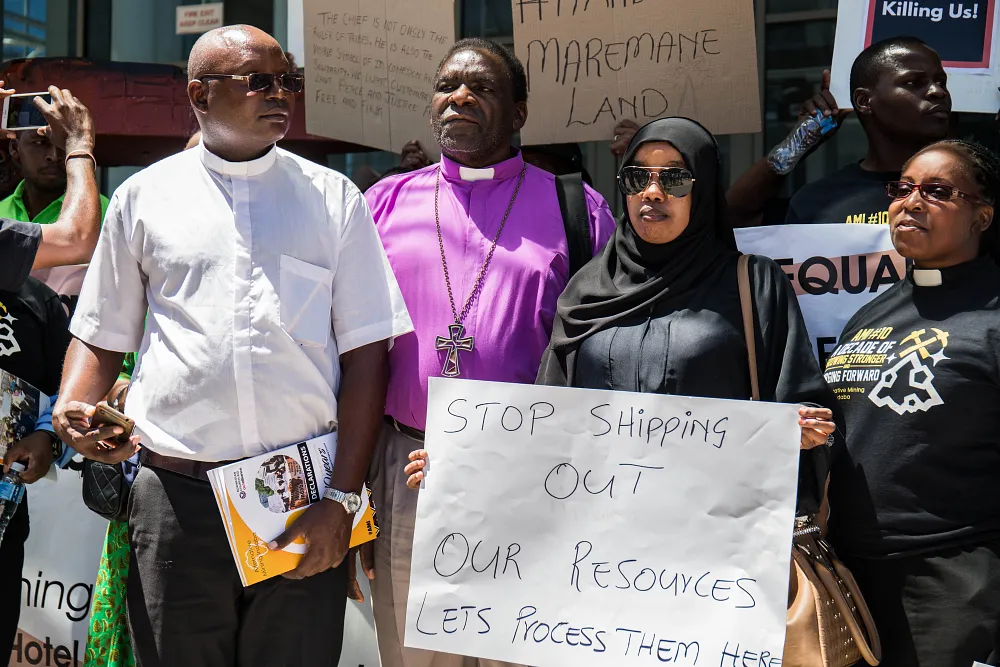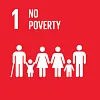Fighting Inequality

To fight poverty, the gap between rich and poor must be reduced. To reduce inequality, NCA and partners advocate for increased financing of the Sustainable Development Goals (SDG)s and universal social protection.

In 2023, we mobilised
35.000
people in the fight for a just resource management.
In 2023, we helped
16.500
people and empowered them to claim their right.
NCA fights corruption and illicit financial flows and holds duty-bearers accountable for ensuring that public resources are redistributed in a fair and equitable way. NCA and partners mobilise rights-holders, strengthen civil society’s advocacy capacity, and engage faith actors as fighting inequality ambassadors, to hold duty-bearers accountable.
Related Sustainable Development Goals



NCA´s response
The goal of the Fighting Inequality programme is fair and equitable finance and redistribution of resources.
To reach this goal, NCA and partners will
- influence duty-bearers to increase finance forand spending to reducing poverty and inequality
- mobilisecommunities for just resource governance
Partners will be supported to advocate for increased social spending and progressive taxation to secure that domestic resources are redistributed in a way that reduces poverty and inequality. NCA and partners mobilise rights-holders to hold duty-bearers accountable and engage faith actors as ambassadors for reduced economic inequality.
Fighting Inequality Advocacy
The Fighting Inequality programme is an advocacy programme. NCA and its partners advocate for natural resources to benefit citizens and for public plans and budgets to reduce poverty. Rights-holders are empowered to hold governments and mining companies accountable. Community mobilisation and advocacy is backed up by coordinated advocacy at national, regional and international levels. NCA enables faith actors and youth to carry out representative and coordinated advocacy at all the above-mentioned levels and works strategically to strengthen and establish strong and influential civil society alliances.
Governments are challenged to increase social spending on public services such as education, health and social protection. National governments and international decision-making bodies are also be targeted in advocacy for tax justice at national and international levels, and for increased taxation of corporations and the richest individuals to secure funding of public services and resource redistribution in society.
Collaborating with Faith Actors and Civil Society
NCA works strategically with its partners and other faith-based organisations to mobilise local communities, faith constituencies and youth, to create a strong public demand for just resource governance, tax justice, financing social protection and fighting corruption.
Faith actors have historically been, and remain, at the forefront of providing social services and support to those living at the socio-economic margins. Through this programme, NCA does not directly support the implementation of social services, but rather take a rights-based approach to supporting its partners’ advocacy in holding duty bearers accountable for providing social protection.
With over a decade of programming in the area of socio-economic justice behind them, NCA and its partners have gained influential positions in the sector. The pan-African civil society platform Alternative Mining Indaba (AMI) was created by NCA and its partners a decade ago. It provides a unique entry point, at the local, national and African regional levels, to mobilise communities for just resource governance and to advocate for tax justice and reduced inequality. This platform brings a wide range of civil society actors together, and AMI multi-stakeholder platforms have per 2020 been arranged in 14 African countries.

Resource Governance
Result cases
In 2010 NCA Southern Africa and partners initiated a civil society platform which has now gained ground in 1428 African countries, mobilised thousands of rights holders and influenced mining companies, national legislations and African continental mining policies.
Why:
Since 1994, the mining elite has met annually in Cape Town for the world’s largest mining conference: “Investing in African Mining Indaba” (Mining Indaba). The conference gathers thousands of mining investors and government representatives with the aim to sustain and increase profit. With a conference fee of USD 1,500 civil society representation is marginalised and decisions are easily made without consideration of the negative effects mining might have on local communities; such as forced relocation, loss of livelihoods, lack of access to and contamination of water and land, lack of compensation, increased violence and negative health impacts.
What:
In 2010 NCA’s regional Southern Africa programme and partners arranged the first Alternative Mining Indaba (AMI), an annual event arranged side-by-side of the business conference, but with mining-affected communities as the main speakers. At AMIs policy recommendations are agreed on and submitted to duty bearers, and dialogue between rights holders and duty bearers is facilitated. NCA has nurtured the AMI space, which has grown in number of participants, countries and influence. It is no longer a conference, but a strong social movement and a well-known actor in the mining sector. AMI has influenced mining companies to change practices, taken part in developing the African Union’s first “African Mineral Governance Framework” and engaged duty bearers at the highest levels. Mining Indaba’s perception of AMI has changed, from ignoring AMI, via lawsuit threats, to constructive dialogue. Now sustainability is included in the conference programme and in 2018, AMI received 40 free passes to attend the conference, worth USD 60,000. In 2019 community-members, faith leaders and civil society participated in 6 different panel discussions, putting community rights on the agenda.
How:
The first AMI only gathered a handful of participants in Cape Town, but with NCA’s support and regional network, the AMI movement started to grow. In 2011 NCA supported the first national AMI in Tanzania and since then all countries implementing the Resource Governance programme arrange national, provincial and district AMIs. Later countries with no NCA representation arranged AMIs, and now there are national and sub-regional AMIs arranged and funded by civil society groups that do not have a formal relation to NCA, showing that AMI is regarded a relevant arena and advocacy tool for mining affected communities and civil society. The AMIs started as a civil society platform, but as community groups, civil society and faith actors increased their capacity, AMIs have been utilised as advocacy arenas. Through AMI, mining companies and governmental duty bearers have been challenged and duty bearers are now participating at AMIs at all levels, providing rights holders with direct access to duty bearers and an opportunity to hold duty bearers accountable.
In 2010, NCA Southern Africa and partners initiated a civil society platform called Alternative Mining Indaba (AMI), which has now gained ground in 14 African countries, mobilised thousands of rights-holders and influenced mining companies, national legislations and African continental mining policies.
AMI has become a well-known actor in the mining sector and has influenced mining companies to change practices, taken part in developing the African Union’s first “African Mineral Governance Framework” and engaged duty bearers at the highest levels. AMI platforms are arranged as safe spaces for mining-affected communities to interact, strategise and hold duty-bearers accountable for just mining policies and practices. At AMIs policy, recommendations are agreed on and submitted to duty bearers, and dialogue between rights-holders and duty bearers are facilitated.
In Zambia in 2018, national budgets and plans increased allocations to social sectors crucial to reduce poverty, in accordance to input made from NCA’s partners. For example, the 2019 national budget increased the allocation to education with 15.6%, and the health allocation increased with 20.9%.
NCA’s partner, Christian Council of Mozambique, has accompanied local communities close to a mining area in the Cabo Del Gado province, where rubies were discovered a decade ago. The local communities have experienced human rights abuses, such as beatings, sexual abuse, unlawful detentions and even killings. Through their interfaith committee, NCA’s partner assisted in the process of documenting human rights abuses and increased the local Artisanal Miners Committee’s capacity to demand international human rights standards compliance by the mining company.
They established collaboration with the public prosecutor, and in 2018, the British-based lawyers, Leigh Day, took up the case and won a settlement on behalf of the affected community, worth GBP 4.5 million 2. The lawyers said that the work of NCA’s partner had been critical for the result of the settlement.
In Malawi, the Mines and Minerals bill from 1981 was outdated, and in 2013, NCA and partners started to advocate for revisions. We used public media, engaged and strengthened civil society alliances and lobbied government officials to influence the revision process of the Mines and Minerals bill. In late 2018, the long-awaited bill passed, and several recommendations from NCA and partners were included, for example communities’ rights to negotiate legally binding community agreements with investors.
The Extractive Industries Transparency Initiative (EITI) is a tool NCA’s partners have used to demand increased transparent management of extractive industries and to ensure that duty bearers such as governments demonstrate increased transparent management of public resources. NCA partners take part in the Multi Stakeholder Groups in Tanzania, Zambia and Malawi, but Zimbabwe is not an EITI member. But, NCA’s partner ZELA lobbied the government, and the Ministry of Finance wanted written input, which appeared word for word in the 2019 National Budget Statement.
Important resources
NCA has produced several resources for preventing and responding to Fighting Inequality, which are available for download. Please see below for the resources and download possibilities.